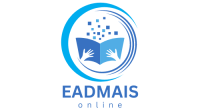The Intelligence Quotient test, better known as the IQ test, is a tool that has generated debates and intrigued many curious minds over the years. Its fundamental purpose is to assess an individual's cognitive ability in relation to a range of mental skills, such as logical reasoning, problem solving, memory and verbal skills.
Especially when applied to young people, the IQ test can offer valuable insights that help both educators and parents understand and support the development of each child's unique abilities and talents.
1. Identification of Potential
The IQ test is not an absolute measure of intelligence, but rather a tool that helps identify a young person's potential in certain cognitive areas.
By assessing their verbal, numerical and spatial reasoning skills, the test can highlight where a young person may have a natural talent or an advantage, guiding educators in creating learning opportunities that align with their aptitudes.
2. Learning Environment Adaptation
Each young person has a unique way of processing information and learning. IQ test results can help educators and parents adapt the learning environment to meet the specific needs of each child.
For example, if a young person scores higher on verbal skills, it may be beneficial to emphasize reading, writing, and classroom discussion.
3. Early Intervention
For children who have learning difficulties or challenges, the IQ test can be a useful tool to identify areas of weakness and allow for early interventions. By quickly and accurately identifying problems, educators can implement tailored support strategies to help youth overcome obstacles before they escalate.
4. Setting Realistic Goals
By understanding a youth's areas of strength and weakness, parents and educators can help them set realistic and achievable goals.
This promotes a sense of direction and healthy self-esteem as the young person can channel their efforts in the right direction, working on their skills while improving areas that require more attention.
5. Stimulation of Holistic Development
While IQ measures specific cognitive abilities, quality education is also concerned with the holistic development of the individual.
IQ test results, when combined with other assessments and observations, can help create an educational plan that promotes emotional, social, and ethical growth, in addition to intellectual abilities.
6. Fostering Self-Awareness and Self-Esteem
By understanding their strengths and areas for improvement, young people can develop greater self-awareness about themselves. This helps them to recognize their own abilities and limitations, promoting a positive attitude towards learning and personal growth. Self-esteem also benefits, as young people can be proud of their achievements and work to overcome challenges with confidence.
7. Career Choice Guidance
For teenagers about to enter college or make decisions about their future careers, the IQ test can be a valuable tool in career guidance. The results can suggest areas of interest that align with your natural abilities.
This can help to avoid ill-informed career choices and point young people towards careers where they can thrive and feel fulfilled.
8. Stimulation of Intellectual Curiosity
When young people are aware of their own intellectual capacities, they can be encouraged to pursue more complex challenges and deepen their knowledge in specific areas.
This can create a virtuous cycle of continuous learning, where the motivation to explore new topics and ideas is fueled by a sense of accomplishment with each advance.
9. Preparing for a Changing World
Intelligence is not static; it evolves over time. Teaching young people that their cognitive skills can be developed and improved throughout their lives prepares them for an ever-changing world.
The positive approach to personal development encouraged by the IQ test can help young people meet challenges with resilience and adaptability.
10. Valuing the Diversity of Intelligences
It is important to remember that the IQ test does not cover all aspects of human intelligence. There are several forms of intelligence such as emotional, creative and practical. The IQ test highlights certain types of cognitive abilities, but it shouldn't be the only criterion for assessing a young person's potential.
By combining IQ test information with other forms of assessment, educators and parents can embrace the diversity of intelligences and ensure that all talents are valued.
In summary, the importance of IQ testing in young people goes beyond the simple measurement of intelligence. It provides a valuable opportunity to target education, support personal growth and prepare young people for a dynamic future. However, it is crucial to interpret test results holistically and consider other dimensions of intelligence in order to promote a complete and balanced development of young individuals.
In short, testing young people's IQ offers a window into understanding their unique cognitive abilities. However, it is important to remember that test results are only one piece of the complete puzzle that makes up an individual. The true value of the IQ test lies in its ability to guide a young person's development, offering personalized support to help them reach their full potential in all areas of life.








